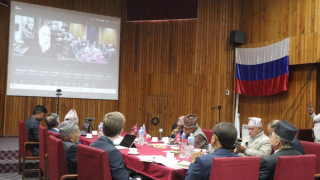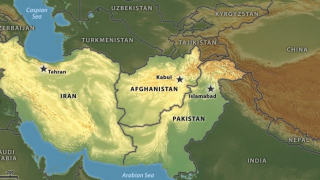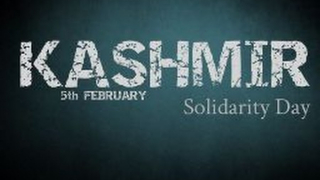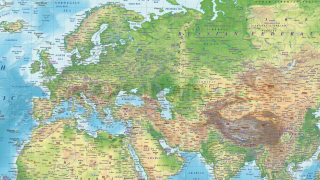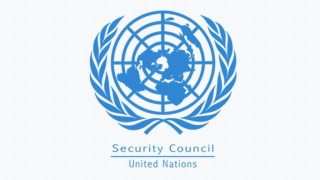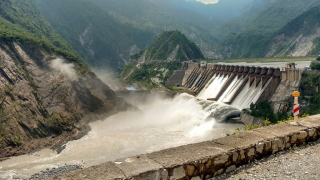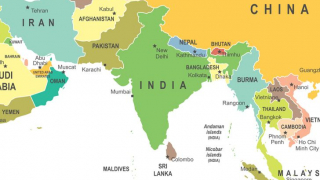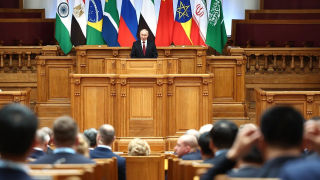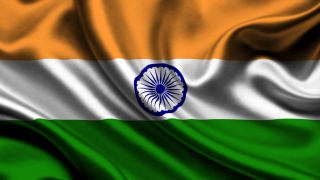After IOK Nepal is the New Victim of India’s Territorial Aggression
14.05.2020
History repeats itself. This axiom has been proved right many a time by the BJP-led India. Territorial aggression, human rights violations, anti-minority posture, ultra nationalism, xenophobia, exclusive citizenship, detention camps and belligerence are not the terms associated only with the Nazis and fascists of 20th century, but also with the RSS and BJP goons of 21st century. From making IOK the victim of saffronization to making Nepal a new prey, Indian government is not only challenging the international canons of territorial sovereignty but also threatening the concept of international security. It has become a giant, adamant at engulfing the neighboring states.
After attacking IOK, the saffron monster seems to target the neighboring Nepal with the killer claws. In 2019, India updated the national map after bifurcation of Jammu and Kashmir into separate union territories. Amid numerous protests, no heed was being paid to that act of aggression. In that map, India also included Kalapani- territory claimed by Nepal- as its own, upon which Kathmandu lodged its protest and suggested Indian government to refrain from such acts of territorial aggression. However, in a recent move, India included Nepal’s territory of Lipu Lekh in a road link to connect India to Tibet in China. On Friday, Indian Defense Minister Rajnath Singh inaugurated a road link between Dharchula – in Indian state of Uttrakhand - and Lipu Lekh via Kalapani – Nepal’s territory - which will reduce the length of Hindu pilgrimage of Kailash Mansarovar Yatra by several days. This lead to protests in Nepal against this act of territorial aggression, as Nepal claims Lipu Lekh - a strip of land on the north western side of Nepal bordering India, Nepal and China- as her territory. The protests have been carried out at Maitighar Mandala and at the Indian Embassy in Nepal. The Nepal’s foreign ministry has clearly maintained the stance that as per 1816 Sugauli Treaty, Nepal claims all the territories east of Mahakali River including Limpiyadhura, Kalapani and Lipu Lekh. Not only this, but Nepal also took strict notice of 2015 idea of bilateral trade route between China and India by including Lipu Lekh pass.
From making IOK the victim of saffronization to making Nepal a new prey, Indian government is not only challenging the international canons of territorial sovereignty but also threatening the concept of international security.
Nepal has kept on promoting the diplomatic solution to the Kalapani problem, however, Indian administration has kept on delaying the talks pertaining to this issue. As reported in Kathmandu Times, Nepal had twice proposed dates for holding meeting between Indian and Nepalese officials to carve a solution for Kalapani controversy raised in the pretext of new map of India drawn by the Indian government in November 2019. On the recent act of territorial aggression by India, Nepal’s Ministry of Foreign Affairs in its press release stated, “The Government of Nepal has learnt with regret about the ‘inauguration’ yesterday by India of ‘Link Road’ connecting to Lipu Lekh (Nepal), which passes through Nepali territory. This unilateral act runs against the understanding reached between the two countries including at the level of Prime Ministers that a solution to boundary issues would be sought through negotiation. In light of this development, the Government of Nepal calls upon the Government of India to refrain from carrying out any activity inside the territory of Nepal.” However, Indian Ministry of External Affairs instead of addressing the woes of Kathmandu responded in following words, “The recently inaugurated road section in Pithoragarh district in the State of Uttarakhand lies completely within the territory of India.” This statement unveils Indian aspirations of saffron imperialism in south Asia.
The current trajectory of BJP-led Indian government appears to be somewhat similar to that of fascists. It is time to hold India accountable for her brutalities and aggressions. The world had witnessed the havoc wreaked by totalitarian and imperialistic regimes in Europe in specific and the world in general. Today the world appears to witness this whole phenomenon again. It is incumbent on the international world to check accelerating Indian aggression against her neighbors. It is worrisome that the policy of appeasement maintained by then if adopted today would cause the bigger harm as compared to the past, for that was the time of Blitzkrieg, while, now is the time of MAD- mutually assured destruction.


